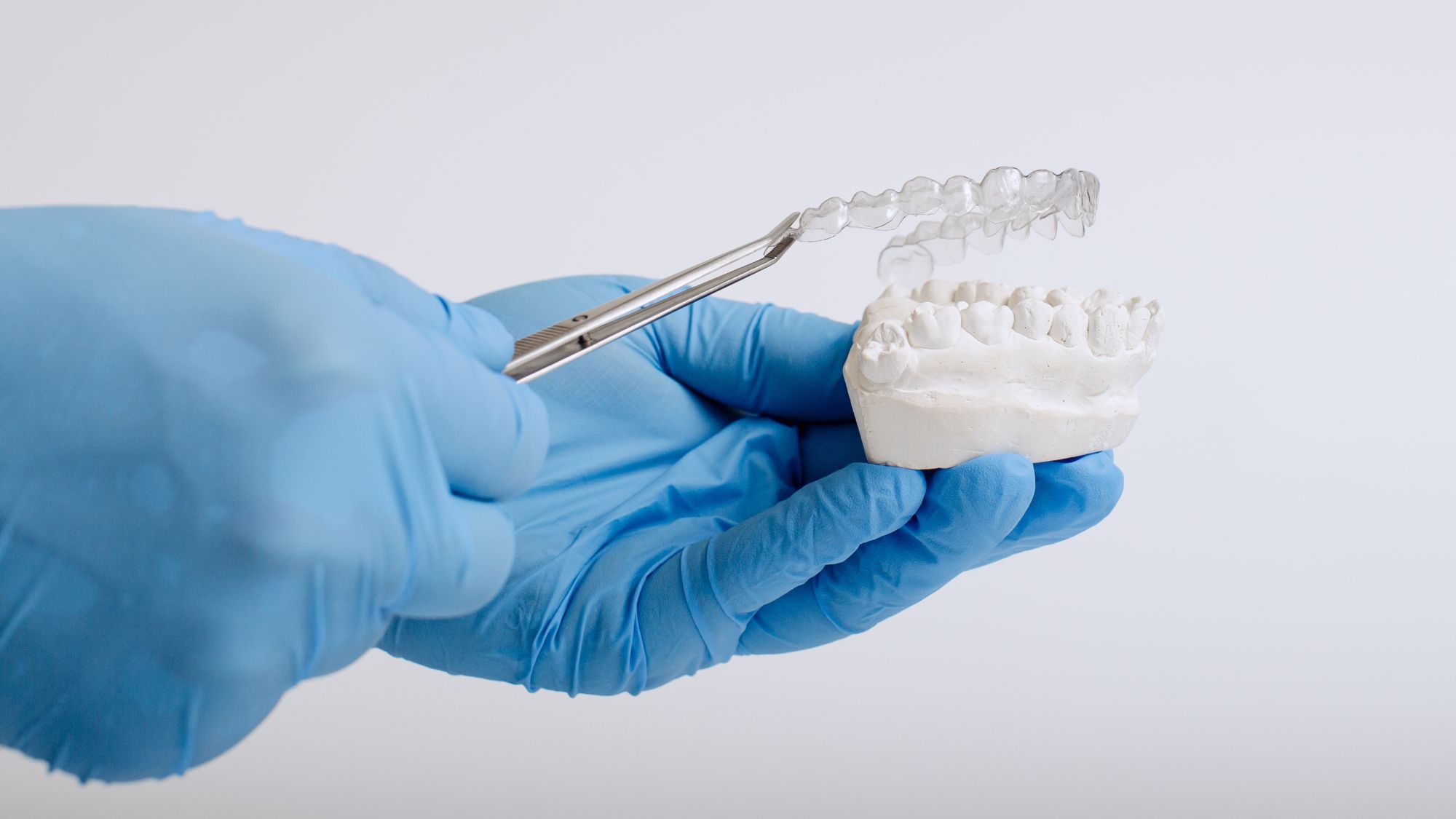Nothing to smile about: the sudden demise of Smile Direct Club
Customers left 'adrift' after controversial teeth-straightening company announces immediate closure

A free daily email with the biggest news stories of the day – and the best features from TheWeek.com
You are now subscribed
Your newsletter sign-up was successful
Smile Direct Club is shutting down, two months after filing for bankruptcy.
The collapse of the US-based online company, which specialised in invisible aligners for teeth straightening, has left many of its customers "confused and stranded", said the BBC. A statement on the firm's website said that, irrespective of their treatment progress, customers would no longer have access to additional aligners or any customer support.
A "last-ditch" attempt to rescue Smile Direct Club failed, the BBC reported, because the firm was "weighed down by debt".
The Week
Escape your echo chamber. Get the facts behind the news, plus analysis from multiple perspectives.

Sign up for The Week's Free Newsletters
From our morning news briefing to a weekly Good News Newsletter, get the best of The Week delivered directly to your inbox.
From our morning news briefing to a weekly Good News Newsletter, get the best of The Week delivered directly to your inbox.
'Unprofitable year after year'
Smile Direct Club (SDC) once promised to "revolutionise the oral-care sector", The Washington Post said, by offering clear dental aligners as a faster and cheaper substitute for traditional braces.
The company, which attracted more than 2 million clients since its 2014 founding, kept costs low by distributing its aligners directly by post, rather than requiring customers to visit a dentist or orthodontist.
When it began trading on the stock market in 2019, SDC was valued at about $8.9 billion (£7 billion). It was initially backed by celebrity endorsements, including from "Queer Eye" star Jonathan Van Ness and the "Love Island" host Arielle Vandenberg.
But over time the stock "plummeted in value", ABC News said, as the company "proved to be unprofitable year after year". In 2022 alone, SDC lost $86.4 million (£68 million).
A free daily email with the biggest news stories of the day – and the best features from TheWeek.com
In a statement posted on its website last week, SDC apologised to customers, saying it had "made the incredibly difficult decision to wind down its global operations, effective immediately". It added that its supposed "Lifetime Smile Guarantee", which promised unlimited customer service support, would no longer be available.
'Weakened teeth'
Many customers were attracted to SDC due to convenience and low prices. The company sold aligners for around £1,800 without the need to visit a dentist. Invisible aligners offered by traditional dentists usually cost many thousands of pounds more.
Even before closing, SDC had faced sustained criticism, with the American Association of Orthodontists (AAO) filing complaints with "more than 35 state dental boards".
"The AAO has long held the position that it is in the best interest of the public to have orthodontic treatment conducted under the direct, ongoing supervision of a licensed orthodontist," it said. "Orthodontic treatment is a professional service and a complex medical process, not a product or device."
In January, the British Dental Association's Dr Eddie Crouch told the BBC that the company's products had left some people with problems. One man, Jamie, a father from Glasgow, told the broadcaster that his aligners had weakened his front teeth, leaving him "unable to bite into an apple".
According to the Daily Mail, other customers "were left with teeth that fell out or cracked as a result of the treatment not being overseen in person".
SDC also attempted to suppress criticism online. Three years ago, a New York Times investigation found that the brand "worked to limit information about customer satisfaction", preventing some clients from receiving refunds without signing a non-disclosure agreement. Others were also prohibited from speaking about their experience on social media or required to remove negative posts if they wanted a refund.
Customers 'adrift'
Customers have been left "adrift" with no idea whether they will get any of their money back, said Lisa Webb, a consumer law expert at the organisation Which?.
She told the BBC that while refunds may be available, they will be handled by liquidators and "customers will be at the back of a long queue of creditors so this is unlikely to amount to much, if anything at all", she said.
She suggested that UK customers still awaiting products, who haven't had their orders cancelled and who paid with a credit card, could potentially try to reclaim their money through Section 75 of the Consumer Credit Act.
For some experts, the company's closure may be a blessing in disguise. Writing on X, the British Dental Association (BDA) said it "shouldn't have taken a bankruptcy to protect patients from harm".
The BDA called for "decent laws and effective regulation", adding that it is dentists who are "left to pick up the pieces" when providers like Smile Direct Club offer "wholly inappropriate treatment".
Arion McNicoll is a freelance writer at The Week Digital and was previously the UK website’s editor. He has also held senior editorial roles at CNN, The Times and The Sunday Times. Along with his writing work, he co-hosts “Today in History with The Retrospectors”, Rethink Audio’s flagship daily podcast, and is a regular panellist (and occasional stand-in host) on “The Week Unwrapped”. He is also a judge for The Publisher Podcast Awards.